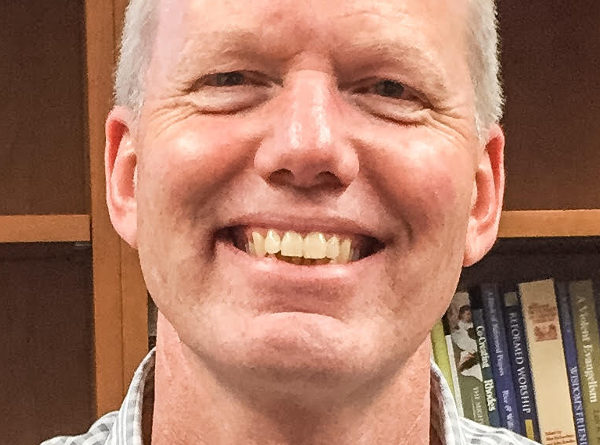What Can White People Do? – by David Maxwell
As the Black Lives Matter movement grew, calling attention to deadly police violence against people of color that continues mostly unpunished, the question raised by many white people was and still is, What can I do? I began the following list to make sure I’m both learning and acting. I certainly don’t intend this to be a blueprint for others, but if it helps anyone, great. Ideas and challenges are most welcome.
Listen
Keep respectful silence and search out live and written voices from those living on the margin, describing their experience and ideas for change.
- Read more books and articles, new and old, by people of color.
- Attend events organized and led by people of color where white people are welcome. Be a quiet, respectful presence. Resist suggesting solutions and question your judgments.
- Observe what you don’t know because you are totally immersed in a system that projects itself as normal, Christian, white, and fair.
Learn
Learn the true racial history of the U.S. as told by people of color. It is not what you learned in school!
- Some of the mind-blowing books I’ve recently read include:
- The Half Has Never Been Told: Slavery and the Making of American Capitalism by Edward Baptist
- White Rage: The Unspoken Truth of Our Racial Divide by Carol Anderson
- The Cross and the Lynching Tree by James Cone
Show up
How will people know you care if you don’t show up and support efforts to resist?
- Social media slacktivism has limited effect. Especially avoid going to a rally and taking a selfie to post to feel good about yourself.
- Go and respect organizers who have planned the event. Encourage them, especially young people who speak out.
- Think beforehand what you will say if news channels are present and interview participants.
- Join the local SURJ (Showing Up for Racial Justice) group.
Speak up
Don’t leave it to the victims of racism to defend themselves. Use that white privilege!
- Break the status quo. Nothing pisses off a racist more than another white person calling them out. Think of ways to challenge that don’t escalate or encourage violence, but turn it back on the perpetrator. For example, “That sounds kind of racist to me.”
- When you see subtle racism, speak up. That’s hard for white liberals since we’re not the target and don’t like to offend. Get over it. An example, “I wonder if our decision would be the same if a person of color were part of this discussion.”
- Especially if you live in a white part of town, speak with your local councilperson and school board representative to find out what they are doing about racial justice.
Repair
Reconciliation can never happen without repairing the wrong. Yes, it will take government and institutional action to really set things right, but meanwhile, what actions can you take?
- Give as much money to educational institutions serving people of color (like Historic Black Colleges) as you do to your white alma mater.
- Find out if any efforts are going on locally toward reparations and how you can support them.
- You live in a segregated city. Quit hiring the local white people to do everything. Find racial ethnic plumbers, electricians, from a few miles away. Help build businesses owned by people of color. Transfer some wealth.
Go Deep
When the people go low, such as electing a racist president, Christians go deep.
- Rediscover that well of prophetic, faithful resistance your religion is founded on.
- Most people of color were not surprised at election results last November. Why was I?
- How is this system constructed? How can I resist? Where should I connect?
Dream
If you had a magic wand to fix this racist country, what would happen? My dream list includes:
- My 90% plus white denomination (Presbyterian Church USA) would confess its historic participation in the sin of racism in this country, figure out how much of its investments were made off the backs of unpaid labor on land stolen from indigenous groups, and give that money to an organization controlled by non-white people to designate. This is not a new idea, but the Black Manifesto was never implemented.
- Every major city would have an engaging Racism Museum with an active hate group documentation center that employs students to monitor and denounce ongoing actions of hate groups around the nation. Just as there are Holocaust museums around the world, so that the atrocities of the Nazi genocide are remembered, why do we not have the same sort of experience to teach about the genocide of Native Americans, enforced slavery and torture of Africans, and ongoing violence against many ethnic groups in our own country? One example that comes close that I know about is the Museum of Tolerance in Los Angeles where lines of school buses come every day, teaching children real history.
- The local bourbon industry (90% of the world’s bourbon comes from Kentucky) benefitted from slave labor for generations, if not in the distilleries themselves then from the fields where the ingredients were raised, on land stolen from indigenous peoples. They would pay the history department of some local racial/ethnic university to investigate this, then calculate the amount of money they owe, and do two things. They would make this history part of their tours, thereby acknowledging their participation in the system. And they would designate a percentage of new bourbon sales to help build racial ethnic institutions and businesses.
David Maxwell is a white, Presbyterian minister and acquisitions editor at Westminster John Knox Press in Louisville, Kentucky.

